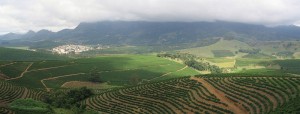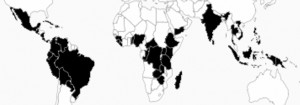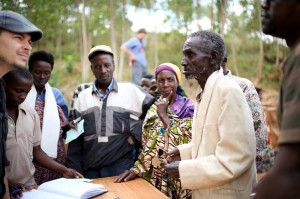If we were to extract pithy lessons from literature like Freakonomics and Everything I Needed To Know About Economics I Learned from Online Dating, it’s that there is an economic dimension to everything. The reason I love writing for this blog is because it allows us to look at seemingly ordinary subjects we take for granted and examine them from new angles and perspectives. I spoke with Jared Soares about his thesis and he gave me another fresh perspective about the economics behind everything. Jared took an interesting approach with his thesis: rather than making a laymen’s subject economical, he analyzed how economic phenomena translate into human experiences. Continue reading to understand how global coffee price fluctuations have far reaching implications in human health in developing countries.
HR: How are agricultural commodity prices linked to national health? These aspects seem unrelated.
For a lot of developing countries, the majority of their economy hinges on exporting one agricultural commodity. Citizens in these fledgling economies dedicate their incomes for the bare essentials to survive. When the price of a commodity is slashed (due to market forces) and it’s the country’s major source of income, the reduction on personal incomes can be unsuitable to maintain a minimum standard of living.
HR: Your thesis specifically focuses on the coffee market. What’s the economic importance of coffee on a local and global scale?

About 50 countries export and sell coffee globally. The coffee sources are primarily concentrated in Latin America, North East Africa, and South East Asia. When you compare how much coffee exports constitute countries’ wealth, the results are striking. For some countries like Burundi, coffee production is a cornerstone to economic stability, making up roughly 80% of GDP. Price shocks in coffee can be extremely devastating for these individuals that don’t have diversified income sources. Contrast this with countries like Brazil, which have other thriving industries, like aeronautics. Countries that rely on exporting other goods means their entire economy and standard of living isn’t controlled by just one commodity’s price fluctuations.
HR: Can you break down your econometrics model for readers? What were you trying to find and what variables did you suspect were contributors?

In my model, I wanted to examine how coffee price fluctuations impacted infant mortality rates. I looked at 46 countries over a 20 year period, comparing changes in mortality rates within countries over this time. Obviously there are other components that determine mortality rates so I included other variables like coffee as a percentage of total exports, agriculture as a percentage of GDP, rural population figures, accessibility to water, prevalence of sanitation facilities, and vaccination rates.
HR: What were your results?
My results confirmed my initial suspicions that as coffee prices increase, infant mortality rates decrease. The rationale is that if coffee growers are paid higher prices for their crops, their health and livelihood is improved because they can afford basic necessities for survival.
HR: What are the far reaching implications for the finding from your thesis? In other words, why should we care?
Not only for coffee, but the effects of agricultural commodity prices have more than just economic implications. There are roughly 25 million coffee farmers worldwide. All of these farmers are price takers and what they sell makes up their income which determines how they live. In 2002, Burundi’s farmers were selling coffee at $.05 per pound, significantly under the cost of producing their crop. Imagine if this financial struggle was multiplied across a country where coffee was the main pillar of their economy. What happens to individuals? Families? Communities? A lot of times, a commodity price and its connection between health, well being, and standard of living isn’t very explicit. Changes in price isn’t just about economic impact, but has a humanistic dimension too.

